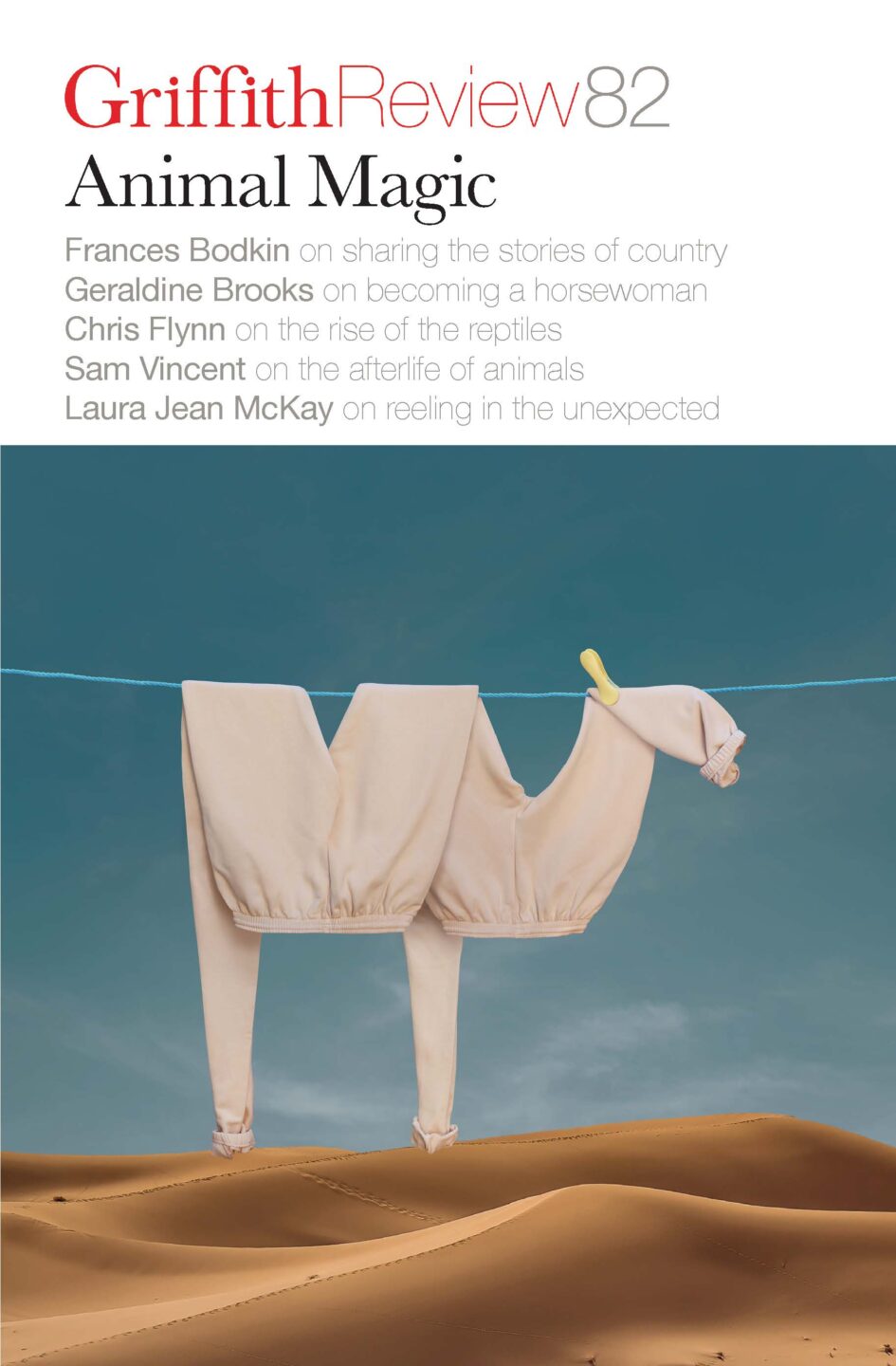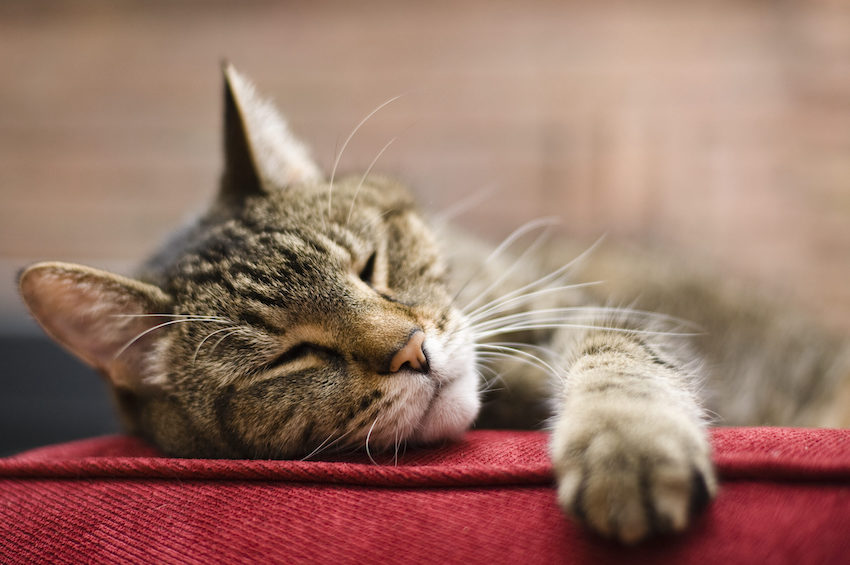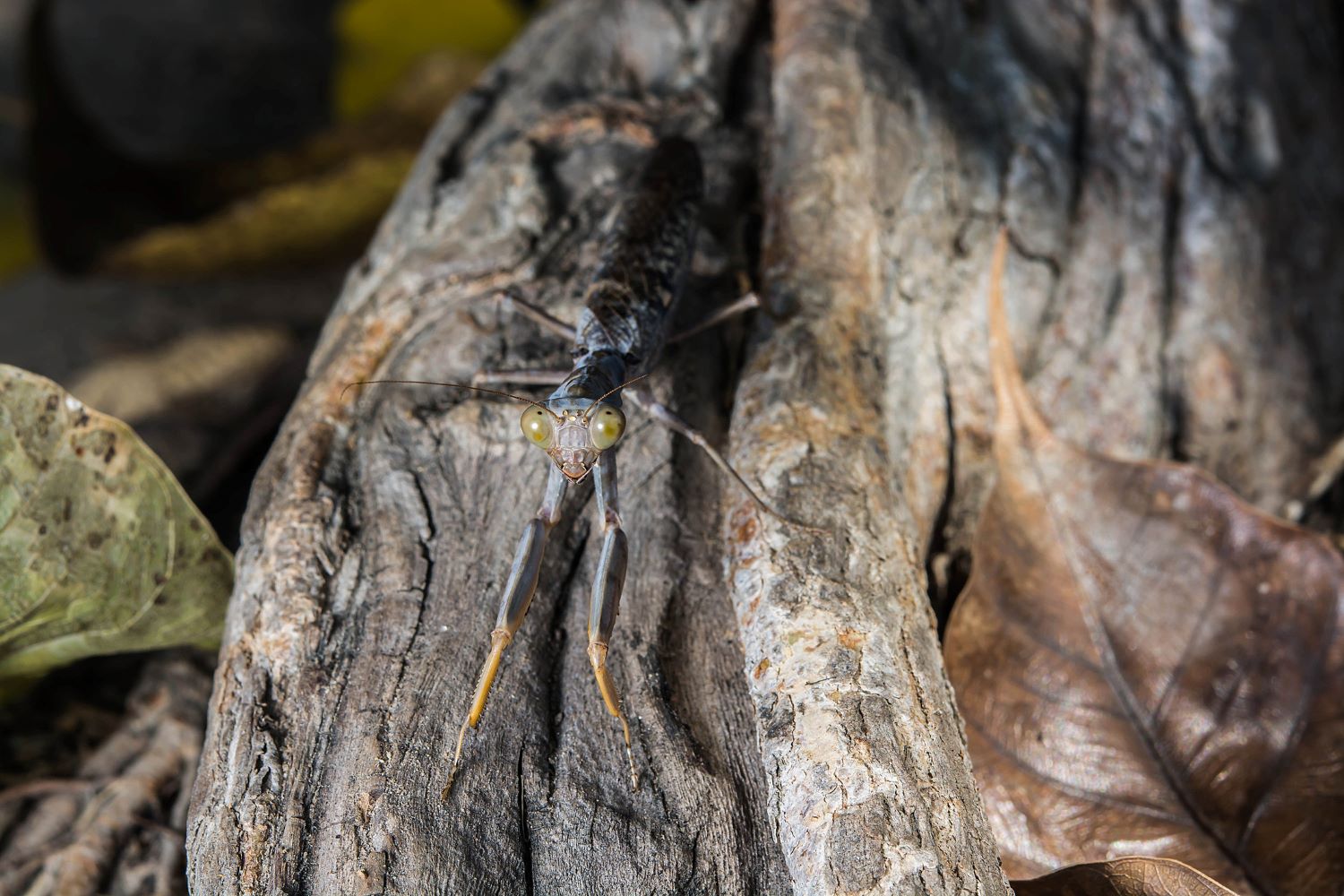Featured in

- Published 20231107
- ISBN: 978-1-922212-89-4
- Extent: 208pp
- Paperback, ePub, PDF, Kindle compatible


Already a subscriber? Sign in here
If you are an educator or student wishing to access content for study purposes please contact us at griffithreview@griffith.edu.au
Share article
More from author

My life with the wave
Non-fiction I WANT TO tell you about a difficult place that I visit regularly since moving to my suburb in the inner fringes of a...
More from this edition

Where the wild things aren’t
Non-fictionMelbourne Zoo knows that it sits in an uneasy position as a conservationist advocate, still keeping animals in cages, and with an exploitative and cruel past. Our guides for the evening walked a practised line between acknowledging the zoo’s harmful history and championing its animal welfare programs, from the native endangered species they’re saving to their Marine Response Unit, a dedicated seaside taskforce just waiting for their sentimental action movie.

The rabbit real
Non-fictionI know you want to ask me if I had a difficult childhood, if I suffered physically or mentally in any way that might swerve from the ‘normal’ pattern of development. But I have nothing to report: no tales of abuse to exploit through memoir; no scars to split open for internal poking. I had friends when I wanted them but was also happy when alone with the rabbit.

The tiger and the unicorn
Non-fictionTigers are as concrete a metaphor as any man could wish: ferocious, territorial loners requiring vast landscape and huge quantities of prey. Henry had named his firm in the spirit of the money making he set out to do: an apex hedge fund, stalking longs and pouncing on shorts, untethered to the groupthink of a pack.